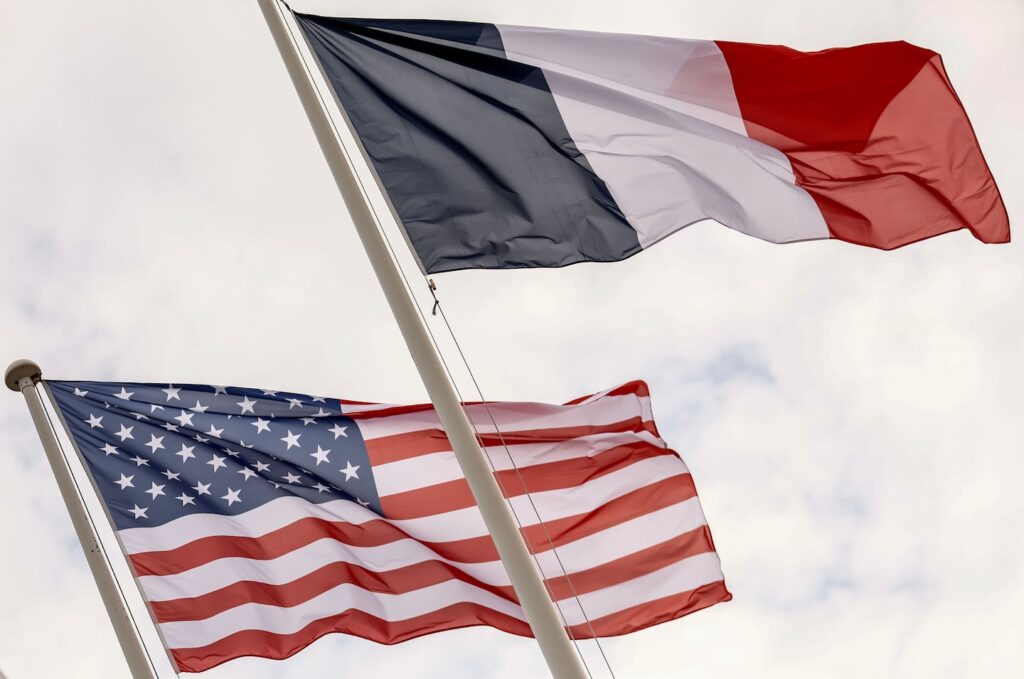STOCKHOLM — Sometimes things that are farther away come into sharper focus.
America's friends in Europe seem to understand the importance of our elections far better than we Americans do. They understand the threat to long-standing alliances between democracies and to the cross-ideological political consensus that resists extremism and authoritarian impulses.
Of course, saying this risks being labeled partisan, since President Biden has made preserving democracy a central issue in his 2024 election and emphasized it during his visit to Europe last week to mark the anniversary of the Normandy landings. Meanwhile, Donald Trump regularly praises the effectiveness of repressive regimes in Russia, China, Hungary and even North Korea. The leaders of these countries are “at their best, whether we like it or not,” the former president said late last month.
But explaining what's at stake in the election shouldn't be seen as partisan. In my conversations with Europeans over the past few weeks, I've been struck by how many people — of all political leanings — are keenly aware of how different the world would look and how much of a challenge democracy would face if Trump wins. There are very few Trump supporters in Europe, except for supporters of far-right parties.
 Follow this author EJ Dionne Jr.'s opinion
Follow this author EJ Dionne Jr.'s opinion
In some ways, this transatlantic disconnect is not surprising. In most democracies, voters typically vote according to mundane domestic issues like prices, housing, jobs, health care, crime, and immigration. For a significant portion of American voters, “protecting democracy” is a fairly abstract issue.
Meanwhile, for those living in Europe, the price of food in the US or the future of Obamacare have little impact on their lives, but they do care about how the outcome of the US election will affect global alliances and the extent to which US influence and power will be exerted against the threat posed by Russian aggression in Ukraine and elsewhere.
There is another reason why Europe is relatively sensitive to the issue of democracy: autocracy is a relatively recent reality in Europe, something that has never been the case in the United States. Think not only of the experience of fascism and Nazism in the 1930s and early 1940s, but also of the relatively recent transitions to democracy in Spain and Portugal in the 1970s, or in Central and Eastern Europe after the fall of the Berlin Wall and the end of the Soviet occupation in 1989.
The words I always use about the political choices of this moment are those of not a political philosopher but the folk singer Joni Mitchell, who declared, “You never know what you had until you lose it.” In Europe, the price of losing democracy is vivid memory.
My worry is that it's not clear enough: Europeans and Americans alike have lost respect for democracy, either because they see it as old-fashioned, or because democratic governments are seen as unable to solve problems, or because politicians are seen as serving the interests of certain elites.
Gallup found that confidence in the way democracy works in the United States has fallen from a high of 61% in 1984 to 28% in late 2023. An Ipsos poll conducted over the same period found that majorities or majorities of respondents in the United States, as well as Poland, France, the United Kingdom, Italy and Croatia, expressed dissatisfaction with the way democracy works. Sweden was the only country surveyed where a majority expressed satisfaction with democracy.
Defenders of democracy might therefore look beyond the wealthy countries of the global North and the West for reminders of democracy's power to give voters the opportunity to demand change, to fight social and economic exclusion, to hold governments to account, and to defend democracy itself.
In recent weeks, there have been two encouraging examples of the value of free elections and how they empower those without wealth or privilege to have a voice.
In India, voters rejected Prime Minister Narendra Modi's Bharatiya Janata Party's chances of winning a majority of parliament, despite the prime minister and most opinion polls predicting a landslide victory. The criticism came from poor Indian voters who felt left out of the country's prosperity and from voters who feared that Modi's Hindu nationalism would lead to constitutional reforms that would disadvantage lower-caste Hindus as well as Muslims.
South Africa's African National Congress has lost its parliamentary majority for the first time since inclusive elections were held in 1994 after the end of apartheid. President Cyril Ramaphosa responded to the criticism on Thursday by calling for the formation of a national unity government.
Neither these elections nor European concerns about President Trump will be enough in themselves to turn democracy into this year's voting issue, but Americans should pay attention to how our democratic friends around the world interpret our choices, as they warn us that embracing authoritarianism never ends well.



